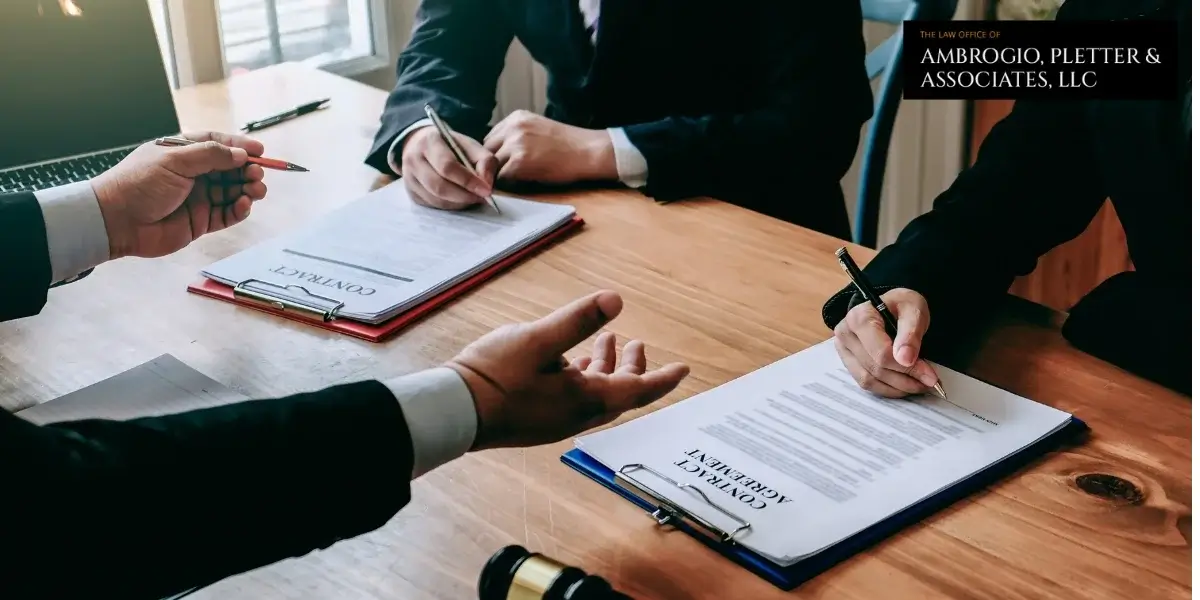Bankruptcy filing does not lead to automatic house forfeiture. Chapter 7 bankruptcy allows you to retain your home when you fulfill the eligibility criteria for the homestead exemption that protects a specific amount of property equity. Chapter 13 bankruptcy enables homeowners to retain their property by following a mortgage repayment plan to settle past-due payments.
Milford Bankruptcy Lawyer
Milford Bankruptcy Attorney

Residents in Milford, Connecticut, who face excessive debts might pursue bankruptcy as their route to financial renewal. Since 1995, Attorney Tim Pletter has provided legal assistance as a Milford bankruptcy lawyer to residents in Shelton, Milton, and beyond to help them understand bankruptcy law complexities.
You can count on Tim Pletter to support and guide you through high credit card debt and other financial challenges as you work to achieve a debt-free status.
Contact Our Stratford
Bankruptcy Attorneys Today
To learn more about the benefits of bankruptcy and loan modifications
Your Bankruptcy Options
Bankruptcy is not a one-size-fits-all solution. There are two primary types of personal bankruptcy: Chapter 7 and Chapter 13. Your eligibility for these bankruptcy types varies based on your financial circumstances, and Tim Pletter will help identify the optimal choice for your situation. There is a third option, Chapter 11, that may be available to you as well.
Chapter 7 Bankruptcy
People who cannot pay off their debts and meet the criteria for the means test should opt for Chapter 7 bankruptcy. The means test measures your income from the past six months to determine if it falls below the national median threshold for your household size, which would make you eligible for Chapter 7 bankruptcy.
Through Chapter 7 bankruptcy proceedings, your debts can be discharged, which means they become null and void, and you no longer owe repayment. People who obtain this discharge experience a quick elimination of their obligations from credit card debts, hospital bills, and personal loans.
Attorney Tim Pletter will guide you through the means test process while preparing necessary schedules and providing a checklist for your Chapter 7 filing documentation in Milford.
A Chapter 7 discharge generally takes about 3 months from when the case is filed, at which point, you will be released from numerous financial responsibilities and have the opportunity to restore your fiscal well-being. When you file for Chapter 7 bankruptcy, you can recover control of your financial situation, which will help you move forward with peace of mind.
Chapter 13 Bankruptcy
The primary function of Chapter 13 bankruptcy is to halt foreclosure actions or to manage substantial secured debt, like mortgage delinquencies and auto loans. Chapter 13 bankruptcy enables you to repay overdue mortgage payments within a three to five-year timeframe when you face foreclosure actions.
Chapter 13 bankruptcy mandates that you prepare and submit a repayment plan to the bankruptcy court based on your financial situation, including income, expenses, and total debts. Under this payment plan, your debts merge into one monthly payment directed to a trustee who then forwards the money to your creditors.
Filing for Chapter 13 bankruptcy offers homeowners protection against foreclosure while organizing their debt payments into a manageable plan. Chapter 13 bankruptcy can be filed by one spouse independently from their partner. One spouse may benefit from filing for Chapter 13 bankruptcy when only they hold the debt responsibilities and need to restructure their debts separately from their partner.
Chapter 11 Bankruptcy
Chapter 11 enables businesses and individuals to obtain relief by restructuring their debts. Chapter 11 operates like Chapter 13, but its primary purpose is to assist business debt restructuring. The filing of a bankruptcy petition by individuals mandates participation in credit counseling sessions conducted over the phone or through the Internet, according to the law.
Special Considerations
In 2023, Connecticut experienced a total of 2,900 bankruptcy filings, comprising 2,315 Chapter 7 cases, 18 Chapter 11 cases, and 567 Chapter 13 cases. Nationally, bankruptcy filings have been increasing. In February 2025, there were 8,446 total bankruptcy filings, marking a 0.9% decrease from the same week in 2024 but a 9.3% increase from 2023.
Bankruptcy filing is a practical resolution in numerous individual circumstances. During a divorce proceeding, you might find relief from joint credit card debt and medical bills through a bankruptcy filing. Divorce courts may need permission from the bankruptcy trustee to settle financial responsibilities before granting approval for divorce proceedings.
The Homestead Exemption is another important consideration to make when filing for bankruptcy. The homestead exemption enables you to safeguard part of your home equity from being claimed to settle financial debts.
Attorney Tim Pletter will guide you through the principles of the homestead exemption and its application in your individual situation. The United States Bankruptcy Court for the District of Connecticut serves as the main court for bankruptcy filings in the state.
FAQs
Contact The Law Office of Ambrogio, Pletter & Associates, LLC
For more assistance in bankruptcy problems, contact The Law Office of Ambrogio, Pletter & Associates, LLC today.
Take Action Today & Begin Moving Forward
Attorney Tim Pletter works directly with his clients, and most of your contact will be directly with him. Please contact our Stratford, Connecticut, office today to arrange your free consultation


